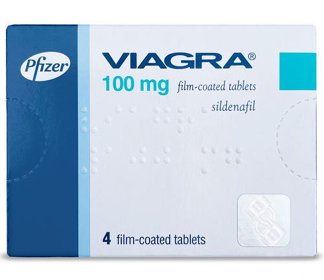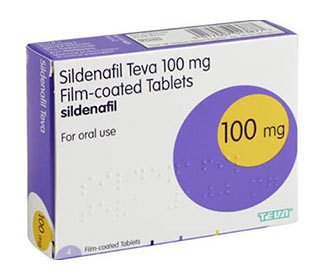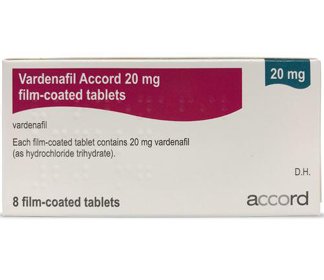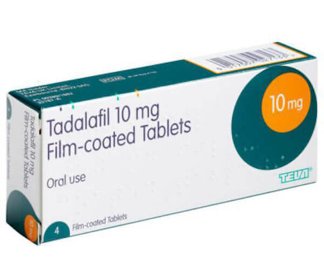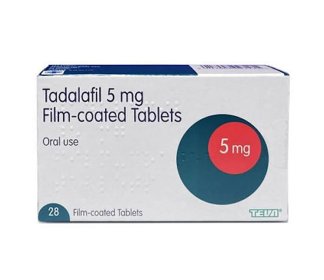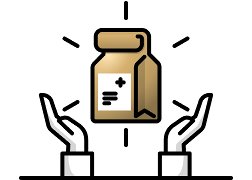
ERECTILE DYSFUNCTION, often referred to as ED, is a common problem affecting millions of men worldwide and can be linked to heart disease, which may also cause erectile dysfunction or make it worse.
Understanding erectile dysfunction involves recognising how it impacts one's ability to achieve and maintain an erection suitable for sexual intercourse.
This dysfunction can occur due to a complex interaction of physical and psychological factors. Some individuals may experience erectile challenges sporadically, while for others, the dysfunction may be chronic.
It’s crucial to grasp what priapism is and how it relates to erectile dysfunction symptoms. erectile dysfunction truly entails to approach it effectively.
By identifying the underlying causes, whether they’re physical or psychological, one can take appropriate steps toward achieving better sexual health and the ability to get an erection.
The symptoms of erectile dysfunction vary and can include a reduced desire for sexual activity or complete inability to achieve an erection.
Gaining a deeper understanding of how conditions like high blood pressure can cause erectile dysfunction is crucial for male sexual dysfunction and overall men's health. erectile dysfunction will empower individuals to seek appropriate treatments and improve their overall wellbeing.
Cialis works as a PDE5 inhibitor to treat erectile dysfunction by increasing blood flow to the blood vessels in the penis, which helps when a man is sexually aroused or during sexual stimulation. It comes in 10mg and 20mg doses, with effects lasting up to 36 hours, making it a popular choice for treatment. Cialis also treats benign prostate issues and pulmonary arterial hypertension. Like Viagra Connect, which helps erectile dysfunction by similar means, tadalafil works by relaxing blood vessels. Common side effects of these treatments may occur, but they are generally well tolerated. Understanding how tadalafil and Viagra work can help manage expectations about the effects of Cialis and its side effects during treatment.
Understanding erectile dysfunction involves recognising how it impacts one's ability to achieve and maintain an erection suitable for sexual intercourse.
This dysfunction can occur due to a complex interaction of physical and psychological factors. Some individuals may experience erectile challenges sporadically, while for others, the dysfunction may be chronic.
It’s crucial to grasp what priapism is and how it relates to erectile dysfunction symptoms. erectile dysfunction truly entails to approach it effectively.
ERECTILE DYSFUNCTION
By identifying the underlying causes, whether they’re physical or psychological, one can take appropriate steps toward achieving better sexual health and the ability to get an erection.
The symptoms of erectile dysfunction vary and can include a reduced desire for sexual activity or complete inability to achieve an erection.
Gaining a deeper understanding of how conditions like high blood pressure can cause erectile dysfunction is crucial for male sexual dysfunction and overall men's health. erectile dysfunction will empower individuals to seek appropriate treatments and improve their overall wellbeing.
Cialis works as a PDE5 inhibitor to treat erectile dysfunction by increasing blood flow to the blood vessels in the penis, which helps when a man is sexually aroused or during sexual stimulation. It comes in 10mg and 20mg doses, with effects lasting up to 36 hours, making it a popular choice for treatment. Cialis also treats benign prostate issues and pulmonary arterial hypertension. Like Viagra Connect, which helps erectile dysfunction by similar means, tadalafil works by relaxing blood vessels. Common side effects of these treatments may occur, but they are generally well tolerated. Understanding how tadalafil and Viagra work can help manage expectations about the effects of Cialis and its side effects during treatment.
Erectile dysfunction, often referred to as impotence, is the inability to get and maintain an erection firm enough for satisfactory sexual intercourse, and it affects many men with ED. While occasional difficulty is normal, persistent ED can indicate underlying health issues and warrants medical attention, especially for those who experience ED frequently. Addressing ED is important as it can significantly impact self-esteem, relationships, and overall quality of life for men with ED. Physical causes, such as cardiovascular disease, are common, as are neurological problems, prostate issues, and medication side effects.
Erectile Dysfunction Overview
In the United Kingdom, erectile dysfunction is a recognised medical condition defined as the inability to get or maintain an erection sufficient for satisfactory sexual activity, often related to issues with blood flow to the penis. Its prevalence increases with age, making it important to understand the causes of ED in older men and how they affect erectile tissue. Neurological problems, often linked to diabetes, can also contribute to the inability to get an erection, which is a symptom of erectile dysfunction and affects blood flow to your penis. Other factors include prostate issues, medication side effects, and conditions that affect blood flow, which can cause erectile dysfunction. Diagnosing ED in the UK involves medical history, a physical examination, and potentially diagnostic tests to uncover the symptoms and causes. The NHS emphasises a holistic approach to the treatment of ED, addressing both physical and psychological aspects to improve erectile function. A thorough assessment is essential to identify the cause of erectile dysfunction and determine the best course of treatment for ED.
Definition and Importance of Sexual Health
Sexual health encompasses physical, emotional, mental, and social well-being related to sexuality, which includes the ability to keep an erection and understanding dysfunction symptoms. Addressing issues like ED is crucial for overall well-being, as it can be a common cause of ED and a sign of underlying health problems such as heart disease, particularly in older men. ED can indicate underlying health problems. Psychological impacts include anxiety, depression, and diminished self-esteem. Comprehensive care addresses both physical and psychological dimensions, ensuring effective treatment for ED and improving the ability to get an erection. The NHS provides services and resources to support sexual health in the UK, focusing on the causes of erectile dysfunction and available treatments for erectile dysfunction. Continued research, education, and access to care are vital for understanding the common causes of erectile dysfunction and improving treatment options.
Statistics on Erectile Dysfunction
In the United Kingdom, ED affects a significant percentage of men, increasing with age, ranging from 5% to 20% in men in their 40s to 50% or higher in men over 60, often related to blood flow issues that can cause ED. The actual figures may be higher due to hesitancy in seeking medical help for the cause of erectile dysfunction, particularly among men with ED. Several factors are known to contribute to ED, including heart disease and issues with the nervous system, which are common causes of erectile dysfunction.
Underlying health conditions such as cardiovascular disease, high blood pressure, and diabetes can lead to erectile dysfunction.
Lifestyle factors like smoking, obesity, and lack of exercise are known to lead to erectile dysfunction, impacting blood flow to your penis.
Understanding these trends is essential for diagnosing erectile dysfunction, effective treatments for erectile dysfunction, and improving overall sexual health for older men. The Urology Care Foundation emphasises the importance of addressing ED as an indicator of potential health problems and encourages seeking treatments for erectile dysfunction.
Distinction Between Impotence and Erectile Dysfunction
Erectile dysfunction is the more specific term for the inability to get or maintain an erection firm enough for satisfactory sexual intercourse, often due to an underlying cause that affects the base of the penis. Impotence was a broader term encompassing various sexual dysfunctions, including the inability to get an erection, which is a symptom of erectile dysfunction and can be treated with prescription drugs. ED specifically refers to the physiological aspect of achieving and sustaining an erection, which can be linked to erectile dysfunction. ED is a recognised medical condition with specific diagnostic criteria and treatments available to help men able to get an erection and treat erectile dysfunction. Physical causes such as cardiovascular disease and diabetes, as well as psychological factors, can contribute to the underlying cause of erectile dysfunction symptoms. Understanding these causes allows for more targeted treatments for those who are unable to get an erection, especially in the context of treatment of erectile dysfunction. Differentiating between impotence and erectile dysfunction allows for more accurate diagnosing erectile dysfunction and effective treatments.
Erectile Dysfunction Overview
In the United Kingdom, erectile dysfunction is a recognised medical condition defined as the inability to get or maintain an erection sufficient for satisfactory sexual activity, often related to issues with blood flow to the penis. Its prevalence increases with age, making it important to understand the causes of ED in older men and how they affect erectile tissue. Neurological problems, often linked to diabetes, can also contribute to the inability to get an erection, which is a symptom of erectile dysfunction and affects blood flow to your penis. Other factors include prostate issues, medication side effects, and conditions that affect blood flow, which can cause erectile dysfunction. Diagnosing ED in the UK involves medical history, a physical examination, and potentially diagnostic tests to uncover the symptoms and causes. The NHS emphasises a holistic approach to the treatment of ED, addressing both physical and psychological aspects to improve erectile function. A thorough assessment is essential to identify the cause of erectile dysfunction and determine the best course of treatment for ED.
| Cause | Treatment Options for erectile dysfunction and its treatment can vary widely based on individual symptoms and causes. |
| Cardiovascular disease | Lifestyle changes can significantly improve erectile function and may reduce the need for taking medication for ED treatment. |
| Medication, like sildenafil, can help men who struggle to get an erection due to various causes linked to erectile dysfunction. | |
| Vacuum erection devices, injections, and penile implants |
Definition and Importance of Sexual Health
Sexual health encompasses physical, emotional, mental, and social well-being related to sexuality, which includes the ability to keep an erection and understanding dysfunction symptoms. Addressing issues like ED is crucial for overall well-being, as it can be a common cause of ED and a sign of underlying health problems such as heart disease, particularly in older men. ED can indicate underlying health problems. Psychological impacts include anxiety, depression, and diminished self-esteem. Comprehensive care addresses both physical and psychological dimensions, ensuring effective treatment for ED and improving the ability to get an erection. The NHS provides services and resources to support sexual health in the UK, focusing on the causes of erectile dysfunction and available treatments for erectile dysfunction. Continued research, education, and access to care are vital for understanding the common causes of erectile dysfunction and improving treatment options.
Statistics on Erectile Dysfunction
In the United Kingdom, ED affects a significant percentage of men, increasing with age, ranging from 5% to 20% in men in their 40s to 50% or higher in men over 60, often related to blood flow issues that can cause ED. The actual figures may be higher due to hesitancy in seeking medical help for the cause of erectile dysfunction, particularly among men with ED. Several factors are known to contribute to ED, including heart disease and issues with the nervous system, which are common causes of erectile dysfunction.
Underlying health conditions such as cardiovascular disease, high blood pressure, and diabetes can lead to erectile dysfunction.
Lifestyle factors like smoking, obesity, and lack of exercise are known to lead to erectile dysfunction, impacting blood flow to your penis.
Understanding these trends is essential for diagnosing erectile dysfunction, effective treatments for erectile dysfunction, and improving overall sexual health for older men. The Urology Care Foundation emphasises the importance of addressing ED as an indicator of potential health problems and encourages seeking treatments for erectile dysfunction.
Distinction Between Impotence and Erectile Dysfunction
Erectile dysfunction is the more specific term for the inability to get or maintain an erection firm enough for satisfactory sexual intercourse, often due to an underlying cause that affects the base of the penis. Impotence was a broader term encompassing various sexual dysfunctions, including the inability to get an erection, which is a symptom of erectile dysfunction and can be treated with prescription drugs. ED specifically refers to the physiological aspect of achieving and sustaining an erection, which can be linked to erectile dysfunction. ED is a recognised medical condition with specific diagnostic criteria and treatments available to help men able to get an erection and treat erectile dysfunction. Physical causes such as cardiovascular disease and diabetes, as well as psychological factors, can contribute to the underlying cause of erectile dysfunction symptoms. Understanding these causes allows for more targeted treatments for those who are unable to get an erection, especially in the context of treatment of erectile dysfunction. Differentiating between impotence and erectile dysfunction allows for more accurate diagnosing erectile dysfunction and effective treatments.
Erectile dysfunction, often referred to as impotence, is a common sexual health concern affecting many men, particularly as they get older. Erectile dysfunction affects a significant percentage of men between the ages of 40 and 70, but it's important to understand that it's not an inevitable part of aging. It refers to the inability to get or maintain an erection firm enough for satisfactory sexual intercourse.
Understanding the common causes of erectile dysfunction is the first step toward finding effective treatments for erectile dysfunction and improving overall sexual health.
Underlying Health Conditions as a Common Cause of ED
Several health conditions can cause erectile dysfunction. These conditions that affect cardiovascular health and blood flow to your penis are common causes of ED. Some examples include:
Diabetes, as high blood sugar levels can damage blood vessels and nerve function, including those in the penis.
Cardiovascular diseases Conditions such as high blood pressure and high cholesterol, which can impair blood flow to the penis, are common symptoms and causes of erectile dysfunction.
Adequate blood flow is essential for achieving and maintaining an erection. Heart disease and related conditions should be considered when diagnosing erectile dysfunction and determining the best course of treatment. Men with ED often have underlying cardiovascular issues that need to be addressed as part of their treatment for ED.
Hormonal Imbalances and ED
Hormonal imbalances can also cause erectile dysfunction. Specifically, low testosterone levels can lead to ED. Testosterone plays a crucial role in sexual desire and erectile function. When testosterone levels are insufficient, it can be difficult to get an erection. Other hormonal disorders can also contribute to the symptom of erectile dysfunction, though they are less common. Hormone levels are typically assessed when diagnosing erectile dysfunction to determine if hormone therapy might be an appropriate treatment for erectile dysfunction.
Neurological Issues and Their Impact on Erectile Function
Nerve damage can significantly impact erectile function. The nerves play a critical role in signaling the penis to become erect, which is essential for the ability to get an erection. Several conditions can damage the nerves needed to get an erection, leading to erectile dysfunction. These include: mental health conditions, hormonal disorders, and medications.
Spinal cord injuries and multiple sclerosis, which directly affect the central nervous system.
Prostate surgery and damage to the pelvic region, which can compromise local nerve function.
Because nerves are essential to getting and keeping an erection, problems with the nervous system should be addressed when considering treatments for erectile dysfunction.
Common Causes of Erectile Dysfunction
Erectile dysfunction affects a significant portion of the male population, especially older men and those between the ages of 40 and 70. Identifying the common causes of erectile dysfunction is crucial for effective management and finding suitable treatments for erectile dysfunction. While aging can be a factor, several underlying causes and health conditions can contribute to the inability to get or maintain an erection firm enough for satisfactory sexual activity. It is important to understand the different common causes of ED, including mental health conditions, to better address this prevalent sexual health issue.
One of the common causes of ED is related to lifestyle factors and psychological conditions. These include:
Psychological stressors like chronic stress, anxiety, and depression, which can interfere with the brain's signaling to the penis.
Unhealthy lifestyle choices, such as smoking, excessive alcohol consumption, and drug use, which can damage blood vessels and impair blood flow.
Obesity, a growing health concern, can also cause erectile dysfunction due to its association with cardiovascular issues and hormonal imbalances. Addressing these lifestyle factors and psychological issues is often a crucial step in the treatment of erectile dysfunction.
Medications may affect the ability to get an erection. can also cause erectile dysfunction as a side effect. Certain prescription drugs, including antidepressants, antihypertensives (used to treat high blood pressure), antihistamines, and some heart medications, can interfere with erectile function. These medications may affect hormone levels, nerve function, or blood flow, leading to difficulties in getting and keeping an erection. If you suspect that your medication is the cause of your erectile dysfunction, it is essential to consult with your healthcare provider. They can assess your medication list and explore alternative options that may have fewer side effects on erectile function and be more effective in the treatment of ED. Never stop taking a prescribed medication without first talking to your doctor.
Vascular issues can be significant symptoms and causes of erectile dysfunction. are also a significant common cause of ED. Adequate blood flow to the penis is crucial for achieving and maintaining an erection, as erectile dysfunction is a common issue. Conditions that affect the blood vessels, such as atherosclerosis (hardening of the arteries), can restrict blood flow to the penile arteries, leading to erectile dysfunction. High blood pressure and high cholesterol levels can contribute to atherosclerosis, further increasing the risk of erectile dysfunction. Peripheral artery disease (PAD), which involves the narrowing of arteries in the limbs, can also affect blood flow to the pelvic region and cause erectile dysfunction. Lifestyle changes such as adopting a healthy diet, exercising regularly, and quitting smoking can improve vascular health and reduce the risk of erectile dysfunction. In some cases, medications or surgical interventions may be necessary to improve blood flow and treat erectile dysfunction.
Neurological conditions can profoundly impact erectile function. The nerves play a critical role in signaling the penis to become erect. Conditions such as multiple sclerosis, Parkinson's disease, stroke, and spinal cord injuries can damage the nerves necessary for getting and keeping an erection. Even surgical procedures, such as prostate surgery, can sometimes damage nerves in the pelvic region, leading to erectile dysfunction. Nerve damage can disrupt the communication between the brain and the penis, preventing the proper signals from being sent and received. The extent of erectile dysfunction caused by neurological issues can vary depending on the severity and location of the nerve damage. Treatments for erectile dysfunction in these cases may include medications, injections, or penile implants to assist with erectile function.
Hormonal imbalances are another common cause of erectile dysfunction. Testosterone, the primary male sex hormone, plays a crucial role in sexual desire, erectile function, and overall sexual health. Low testosterone levels can lead to erectile dysfunction, decreased libido, and fatigue. Other hormone disorders, such as hyperthyroidism or hypothyroidism, can also affect erectile function, though they are less common. Diagnosing erectile dysfunction often involves assessing hormone levels to determine if hormone therapy is an appropriate treatment for erectile dysfunction. Hormone replacement therapy may help restore testosterone levels and improve erectile function in men with low testosterone. However, it is essential to discuss the potential risks and benefits of hormone therapy with your doctor, especially considering your medical history.
Prostate issues can also contribute to erectile dysfunction. An enlarged prostate, also known as benign prostatic hyperplasia (BPH), can cause urinary symptoms and, in some cases, affect erectile function. Prostate cancer and treatments for prostate cancer, such as surgery or radiation therapy, can also damage nerves and blood vessels in the pelvic region, leading to erectile dysfunction. Men who have undergone prostate surgery may experience erectile dysfunction as a side effect, making treatment of erectile dysfunction essential. Treatments for erectile dysfunction after prostate surgery may include medications, injections, or penile implants to help restore erectile function. It's essential to discuss the potential impact on sexual function with your doctor before undergoing any prostate treatments.
Pelvic injuries and surgeries can also cause erectile dysfunction. Trauma to the pelvic region, such as fractures or crush injuries, can damage blood vessels, nerves, and tissues necessary for erectile function. Surgeries in the pelvic area, such as those for bladder cancer or colorectal cancer, can also lead to erectile dysfunction if nerves or blood vessels are damaged during the procedure. The risk of erectile dysfunction following pelvic injuries or surgeries depends on the extent of the damage and the individual's overall health. Rehabilitation and treatments for erectile dysfunction may help restore the ability to get an erection after such injuries or surgeries.
In conclusion, erectile dysfunction affects many men, and getting or maintaining an erection can become challenging due to various factors. Health conditions such as diabetes, heart disease, high blood pressure, and hormonal imbalances can cause erectile dysfunction. Lifestyle factors like stress, smoking, and obesity, prescription drugs, as well as nerve damage, prostate issues, and pelvic injuries can also lead to ED. Recognizing these common causes of erectile dysfunction is the first step towards seeking appropriate medical advice and exploring effective treatments for erectile dysfunction to improve overall sexual health and quality of life. For instance, sildenafil can be prescribed to treat erectile dysfunction and help men with ED get and maintain an erection for sexual activity.
Cardiovascular Issues as a Cause of Erectile Dysfunction
Cardiovascular issues are a significant common cause of erectile dysfunction. Conditions that affect the heart and blood vessels, such as heart disease, high blood pressure, and high cholesterol, can impair blood flow to the penis, making it difficult to get and maintain an erection. Adequate blood flow is essential for achieving and maintaining an erection, and any condition that affects the blood vessels can lead to erectile dysfunction. Atherosclerosis, or hardening of the arteries, can restrict blood flow to the penile arteries, which can cause ED. High blood pressure can damage blood vessels over time, reducing their ability to dilate and allow sufficient blood flow to the penis. High cholesterol can contribute to the buildup of plaque in the arteries, further restricting blood flow. Therefore, maintaining good cardiovascular health is crucial for preserving erectile function and overall sexual health.
Men with ED often have underlying cardiovascular issues that need to be addressed. In many cases, erectile dysfunction can be an early warning sign of heart disease or other cardiovascular problems. This is because the blood vessels in the penis are smaller and more susceptible to damage than those in other parts of the body. If you're experiencing erectile dysfunction, it's essential to consult with your doctor to assess your cardiovascular health. Your doctor may recommend lifestyle changes, such as adopting a healthy diet, exercising regularly, and quitting smoking, to improve your cardiovascular health and erectile function, which may also involve the use of a vacuum pump.. They may also prescribe medications to manage high blood pressure or high cholesterol. Addressing underlying cardiovascular issues is often a crucial step in treating erectile dysfunction.
Treatments for erectile dysfunction often focus on improving blood flow to the penis. Prescription drugs, such as sildenafil, are commonly prescribed to treat erectile dysfunction. These medications work by relaxing the blood vessels in the penis, allowing for increased blood flow and facilitating an erection. However, these medications are not effective if there is significant underlying vascular damage. In some cases, more invasive treatments, such as penile implants, may be necessary to restore the ability to get an erection. A penile implant involves surgically implanting a device into the penis that allows men to achieve an erection. While a penile implant is an effective treatment for erectile dysfunction, it is typically considered a last resort option for men who have not responded to other treatments. Maintaining good cardiovascular health through lifestyle changes and medical management can significantly reduce the risk of erectile dysfunction and improve overall sexual health.
Impact of Diabetes on Erectile Dysfunction
Diabetes is a significant underlying cause of erectile dysfunction. The high blood sugar levels associated with diabetes can damage blood vessels and nerve function throughout the body, including those in the penis, leading to being unable to get an erection. This damage to the blood vessels impairs blood flow to the penile region, which is essential for getting and keeping an erection. When blood flow is compromised, it becomes difficult to achieve and maintain an erection firm enough for satisfactory sexual intercourse, leading to being unable to get an erection. Furthermore, diabetes can also damage the nerves responsible for transmitting signals from the brain to the penis, affecting erectile function. Diabetic neuropathy, or nerve damage caused by diabetes, can disrupt the communication between the brain and the penis, hindering the process of getting an erection. Diabetes can cause erectile dysfunction because of the damage it can cause to the body. Men with ED must work with their physicians to treat their diabetes and other causes of ED. Men with diabetes should be particularly vigilant about managing their blood sugar levels to minimise the risk of erectile dysfunction.
The prevalence of erectile dysfunction is higher in men with diabetes Men with diabetes are often unable to get an erection compared to those without diabetes. Poorly controlled diabetes is more likely to lead to erectile dysfunction, emphasizing the importance of effective diabetes management. Maintaining healthy blood sugar levels through diet, exercise, and medication can significantly reduce the risk of erectile dysfunction in men with diabetes. Additionally, other health conditions associated with diabetes, such as high blood pressure and high cholesterol, can further contribute to erectile dysfunction. High blood pressure and high cholesterol can damage blood vessels, further impairing blood flow to the penis. Addressing these cardiovascular risk factors is crucial for preventing and treating erectile dysfunction in men with diabetes. Men with ED should work with their physicians to treat the diabetes and other causes of ED. It is important to understand that men with diabetes are more likely to have the symptom of erectile dysfunction. Managing diabetes and cardiovascular health can significantly improve erectile function and overall sexual health.
Treatments for erectile dysfunction in men with diabetes may include lifestyle changes, medications, or devices as part of their treatment for ED. Lifestyle changes such as adopting a healthy diet, exercising regularly, and quitting smoking can improve blood flow and erectile function. Prescription drugs, such as sildenafil, can also be prescribed to treat erectile dysfunction by increasing blood flow to the penis. However, it is essential to consult with your doctor before taking any medications, as they may interact with other medications you are taking for diabetes or other health conditions. In some cases, more invasive treatments, such as penile implants, may be considered if other treatments are not effective. A penile implant involves surgically implanting a device into the penis that allows men to achieve an erection. Managing diabetes and addressing other health conditions, such as high blood pressure and high cholesterol, is crucial for preventing and treating erectile dysfunction in men with diabetes.
Hormonal Imbalances and Their Role in Erectile Dysfunction
Hormonal imbalances can significantly cause erectile dysfunction, playing a crucial role in erectile function and overall sexual health. Testosterone, the primary male sex hormone, is essential for sexual desire, erectile function, and maintaining an erection. Low testosterone levels can lead to erectile dysfunction, decreased libido, and fatigue. When testosterone levels are insufficient, it can be difficult to get or maintain an erection firm enough for satisfactory sexual activity. Testosterone influences the production of nitric oxide, a molecule that helps relax the blood vessels in the penis, allowing for increased blood flow. Insufficient testosterone levels can impair this process, leading to difficulties in getting and keeping an erection. Because hormones are key to getting and keeping an erection, any issues with hormones can cause ED. Thus, hormones are a common symptom of erectile dysfunction (ED). Other hormone disorders, such as hyperthyroidism or hypothyroidism, can also affect erectile function, though they are less common.
Diagnosing erectile dysfunction often involves assessing hormone levels to determine if hormone therapy is an appropriate treatment for erectile dysfunction. A blood test can measure testosterone levels and identify any hormonal imbalances. If low testosterone is identified as a common cause of erectile dysfunction, hormone replacement therapy may be considered. Testosterone replacement therapy can help restore testosterone levels and improve erectile function in men with low testosterone. However, it is essential to discuss the potential risks and benefits of hormone therapy with your doctor before starting treatment. Hormone replacement therapy may not be suitable for all men, and it can have side effects. Other hormonal disorders, such as hyperthyroidism or hypothyroidism, can also affect blood flow to your penis and may require specific treatments to address the underlying hormonal imbalance.
In addition to testosterone, other hormones can also play a role in the ability to get an erection. Prolactin, a hormone produced by the pituitary gland, can sometimes interfere with erectile function if levels are too high, leading to organic erectile dysfunction. Elevated prolactin levels can suppress testosterone production and impair sexual desire. Conditions that affect the pituitary gland, such as tumors, can cause hormonal imbalances and lead to erectile dysfunction. Estrogen, the primary female sex hormone, is also present in men, although at much lower levels than in women. Imbalances in estrogen levels can also affect erectile function. Managing hormonal imbalances through medication, lifestyle changes, or other treatments can significantly improve erectile function and overall sexual health. Men with ED should be concerned with their hormone levels and whether or not they may cause their inability to get an erection. It is essential to consult with your doctor to determine the best course of treatment for hormonal imbalances and erectile dysfunction.
Understanding the common causes of erectile dysfunction is the first step toward finding effective treatments for erectile dysfunction and improving overall sexual health.
Symptoms and Causes
Underlying Health Conditions as a Common Cause of ED
Several health conditions can cause erectile dysfunction. These conditions that affect cardiovascular health and blood flow to your penis are common causes of ED. Some examples include:
Diabetes, as high blood sugar levels can damage blood vessels and nerve function, including those in the penis.
Cardiovascular diseases Conditions such as high blood pressure and high cholesterol, which can impair blood flow to the penis, are common symptoms and causes of erectile dysfunction.
Adequate blood flow is essential for achieving and maintaining an erection. Heart disease and related conditions should be considered when diagnosing erectile dysfunction and determining the best course of treatment. Men with ED often have underlying cardiovascular issues that need to be addressed as part of their treatment for ED.
Hormonal Imbalances and ED
Hormonal imbalances can also cause erectile dysfunction. Specifically, low testosterone levels can lead to ED. Testosterone plays a crucial role in sexual desire and erectile function. When testosterone levels are insufficient, it can be difficult to get an erection. Other hormonal disorders can also contribute to the symptom of erectile dysfunction, though they are less common. Hormone levels are typically assessed when diagnosing erectile dysfunction to determine if hormone therapy might be an appropriate treatment for erectile dysfunction.
Neurological Issues and Their Impact on Erectile Function
Nerve damage can significantly impact erectile function. The nerves play a critical role in signaling the penis to become erect, which is essential for the ability to get an erection. Several conditions can damage the nerves needed to get an erection, leading to erectile dysfunction. These include: mental health conditions, hormonal disorders, and medications.
Spinal cord injuries and multiple sclerosis, which directly affect the central nervous system.
Prostate surgery and damage to the pelvic region, which can compromise local nerve function.
Because nerves are essential to getting and keeping an erection, problems with the nervous system should be addressed when considering treatments for erectile dysfunction.
Common Causes of Erectile Dysfunction
Erectile dysfunction affects a significant portion of the male population, especially older men and those between the ages of 40 and 70. Identifying the common causes of erectile dysfunction is crucial for effective management and finding suitable treatments for erectile dysfunction. While aging can be a factor, several underlying causes and health conditions can contribute to the inability to get or maintain an erection firm enough for satisfactory sexual activity. It is important to understand the different common causes of ED, including mental health conditions, to better address this prevalent sexual health issue.
One of the common causes of ED is related to lifestyle factors and psychological conditions. These include:
Psychological stressors like chronic stress, anxiety, and depression, which can interfere with the brain's signaling to the penis.
Unhealthy lifestyle choices, such as smoking, excessive alcohol consumption, and drug use, which can damage blood vessels and impair blood flow.
Obesity, a growing health concern, can also cause erectile dysfunction due to its association with cardiovascular issues and hormonal imbalances. Addressing these lifestyle factors and psychological issues is often a crucial step in the treatment of erectile dysfunction.
Medications may affect the ability to get an erection. can also cause erectile dysfunction as a side effect. Certain prescription drugs, including antidepressants, antihypertensives (used to treat high blood pressure), antihistamines, and some heart medications, can interfere with erectile function. These medications may affect hormone levels, nerve function, or blood flow, leading to difficulties in getting and keeping an erection. If you suspect that your medication is the cause of your erectile dysfunction, it is essential to consult with your healthcare provider. They can assess your medication list and explore alternative options that may have fewer side effects on erectile function and be more effective in the treatment of ED. Never stop taking a prescribed medication without first talking to your doctor.
Vascular issues can be significant symptoms and causes of erectile dysfunction. are also a significant common cause of ED. Adequate blood flow to the penis is crucial for achieving and maintaining an erection, as erectile dysfunction is a common issue. Conditions that affect the blood vessels, such as atherosclerosis (hardening of the arteries), can restrict blood flow to the penile arteries, leading to erectile dysfunction. High blood pressure and high cholesterol levels can contribute to atherosclerosis, further increasing the risk of erectile dysfunction. Peripheral artery disease (PAD), which involves the narrowing of arteries in the limbs, can also affect blood flow to the pelvic region and cause erectile dysfunction. Lifestyle changes such as adopting a healthy diet, exercising regularly, and quitting smoking can improve vascular health and reduce the risk of erectile dysfunction. In some cases, medications or surgical interventions may be necessary to improve blood flow and treat erectile dysfunction.
Neurological conditions can profoundly impact erectile function. The nerves play a critical role in signaling the penis to become erect. Conditions such as multiple sclerosis, Parkinson's disease, stroke, and spinal cord injuries can damage the nerves necessary for getting and keeping an erection. Even surgical procedures, such as prostate surgery, can sometimes damage nerves in the pelvic region, leading to erectile dysfunction. Nerve damage can disrupt the communication between the brain and the penis, preventing the proper signals from being sent and received. The extent of erectile dysfunction caused by neurological issues can vary depending on the severity and location of the nerve damage. Treatments for erectile dysfunction in these cases may include medications, injections, or penile implants to assist with erectile function.
Hormonal imbalances are another common cause of erectile dysfunction. Testosterone, the primary male sex hormone, plays a crucial role in sexual desire, erectile function, and overall sexual health. Low testosterone levels can lead to erectile dysfunction, decreased libido, and fatigue. Other hormone disorders, such as hyperthyroidism or hypothyroidism, can also affect erectile function, though they are less common. Diagnosing erectile dysfunction often involves assessing hormone levels to determine if hormone therapy is an appropriate treatment for erectile dysfunction. Hormone replacement therapy may help restore testosterone levels and improve erectile function in men with low testosterone. However, it is essential to discuss the potential risks and benefits of hormone therapy with your doctor, especially considering your medical history.
Prostate issues can also contribute to erectile dysfunction. An enlarged prostate, also known as benign prostatic hyperplasia (BPH), can cause urinary symptoms and, in some cases, affect erectile function. Prostate cancer and treatments for prostate cancer, such as surgery or radiation therapy, can also damage nerves and blood vessels in the pelvic region, leading to erectile dysfunction. Men who have undergone prostate surgery may experience erectile dysfunction as a side effect, making treatment of erectile dysfunction essential. Treatments for erectile dysfunction after prostate surgery may include medications, injections, or penile implants to help restore erectile function. It's essential to discuss the potential impact on sexual function with your doctor before undergoing any prostate treatments.
Pelvic injuries and surgeries can also cause erectile dysfunction. Trauma to the pelvic region, such as fractures or crush injuries, can damage blood vessels, nerves, and tissues necessary for erectile function. Surgeries in the pelvic area, such as those for bladder cancer or colorectal cancer, can also lead to erectile dysfunction if nerves or blood vessels are damaged during the procedure. The risk of erectile dysfunction following pelvic injuries or surgeries depends on the extent of the damage and the individual's overall health. Rehabilitation and treatments for erectile dysfunction may help restore the ability to get an erection after such injuries or surgeries.
In conclusion, erectile dysfunction affects many men, and getting or maintaining an erection can become challenging due to various factors. Health conditions such as diabetes, heart disease, high blood pressure, and hormonal imbalances can cause erectile dysfunction. Lifestyle factors like stress, smoking, and obesity, prescription drugs, as well as nerve damage, prostate issues, and pelvic injuries can also lead to ED. Recognizing these common causes of erectile dysfunction is the first step towards seeking appropriate medical advice and exploring effective treatments for erectile dysfunction to improve overall sexual health and quality of life. For instance, sildenafil can be prescribed to treat erectile dysfunction and help men with ED get and maintain an erection for sexual activity.
Cardiovascular Issues as a Cause of Erectile Dysfunction
Cardiovascular issues are a significant common cause of erectile dysfunction. Conditions that affect the heart and blood vessels, such as heart disease, high blood pressure, and high cholesterol, can impair blood flow to the penis, making it difficult to get and maintain an erection. Adequate blood flow is essential for achieving and maintaining an erection, and any condition that affects the blood vessels can lead to erectile dysfunction. Atherosclerosis, or hardening of the arteries, can restrict blood flow to the penile arteries, which can cause ED. High blood pressure can damage blood vessels over time, reducing their ability to dilate and allow sufficient blood flow to the penis. High cholesterol can contribute to the buildup of plaque in the arteries, further restricting blood flow. Therefore, maintaining good cardiovascular health is crucial for preserving erectile function and overall sexual health.
Men with ED often have underlying cardiovascular issues that need to be addressed. In many cases, erectile dysfunction can be an early warning sign of heart disease or other cardiovascular problems. This is because the blood vessels in the penis are smaller and more susceptible to damage than those in other parts of the body. If you're experiencing erectile dysfunction, it's essential to consult with your doctor to assess your cardiovascular health. Your doctor may recommend lifestyle changes, such as adopting a healthy diet, exercising regularly, and quitting smoking, to improve your cardiovascular health and erectile function, which may also involve the use of a vacuum pump.. They may also prescribe medications to manage high blood pressure or high cholesterol. Addressing underlying cardiovascular issues is often a crucial step in treating erectile dysfunction.
Treatments for erectile dysfunction often focus on improving blood flow to the penis. Prescription drugs, such as sildenafil, are commonly prescribed to treat erectile dysfunction. These medications work by relaxing the blood vessels in the penis, allowing for increased blood flow and facilitating an erection. However, these medications are not effective if there is significant underlying vascular damage. In some cases, more invasive treatments, such as penile implants, may be necessary to restore the ability to get an erection. A penile implant involves surgically implanting a device into the penis that allows men to achieve an erection. While a penile implant is an effective treatment for erectile dysfunction, it is typically considered a last resort option for men who have not responded to other treatments. Maintaining good cardiovascular health through lifestyle changes and medical management can significantly reduce the risk of erectile dysfunction and improve overall sexual health.
Impact of Diabetes on Erectile Dysfunction
Diabetes is a significant underlying cause of erectile dysfunction. The high blood sugar levels associated with diabetes can damage blood vessels and nerve function throughout the body, including those in the penis, leading to being unable to get an erection. This damage to the blood vessels impairs blood flow to the penile region, which is essential for getting and keeping an erection. When blood flow is compromised, it becomes difficult to achieve and maintain an erection firm enough for satisfactory sexual intercourse, leading to being unable to get an erection. Furthermore, diabetes can also damage the nerves responsible for transmitting signals from the brain to the penis, affecting erectile function. Diabetic neuropathy, or nerve damage caused by diabetes, can disrupt the communication between the brain and the penis, hindering the process of getting an erection. Diabetes can cause erectile dysfunction because of the damage it can cause to the body. Men with ED must work with their physicians to treat their diabetes and other causes of ED. Men with diabetes should be particularly vigilant about managing their blood sugar levels to minimise the risk of erectile dysfunction.
The prevalence of erectile dysfunction is higher in men with diabetes Men with diabetes are often unable to get an erection compared to those without diabetes. Poorly controlled diabetes is more likely to lead to erectile dysfunction, emphasizing the importance of effective diabetes management. Maintaining healthy blood sugar levels through diet, exercise, and medication can significantly reduce the risk of erectile dysfunction in men with diabetes. Additionally, other health conditions associated with diabetes, such as high blood pressure and high cholesterol, can further contribute to erectile dysfunction. High blood pressure and high cholesterol can damage blood vessels, further impairing blood flow to the penis. Addressing these cardiovascular risk factors is crucial for preventing and treating erectile dysfunction in men with diabetes. Men with ED should work with their physicians to treat the diabetes and other causes of ED. It is important to understand that men with diabetes are more likely to have the symptom of erectile dysfunction. Managing diabetes and cardiovascular health can significantly improve erectile function and overall sexual health.
Treatments for erectile dysfunction in men with diabetes may include lifestyle changes, medications, or devices as part of their treatment for ED. Lifestyle changes such as adopting a healthy diet, exercising regularly, and quitting smoking can improve blood flow and erectile function. Prescription drugs, such as sildenafil, can also be prescribed to treat erectile dysfunction by increasing blood flow to the penis. However, it is essential to consult with your doctor before taking any medications, as they may interact with other medications you are taking for diabetes or other health conditions. In some cases, more invasive treatments, such as penile implants, may be considered if other treatments are not effective. A penile implant involves surgically implanting a device into the penis that allows men to achieve an erection. Managing diabetes and addressing other health conditions, such as high blood pressure and high cholesterol, is crucial for preventing and treating erectile dysfunction in men with diabetes.
Hormonal Imbalances and Their Role in Erectile Dysfunction
Hormonal imbalances can significantly cause erectile dysfunction, playing a crucial role in erectile function and overall sexual health. Testosterone, the primary male sex hormone, is essential for sexual desire, erectile function, and maintaining an erection. Low testosterone levels can lead to erectile dysfunction, decreased libido, and fatigue. When testosterone levels are insufficient, it can be difficult to get or maintain an erection firm enough for satisfactory sexual activity. Testosterone influences the production of nitric oxide, a molecule that helps relax the blood vessels in the penis, allowing for increased blood flow. Insufficient testosterone levels can impair this process, leading to difficulties in getting and keeping an erection. Because hormones are key to getting and keeping an erection, any issues with hormones can cause ED. Thus, hormones are a common symptom of erectile dysfunction (ED). Other hormone disorders, such as hyperthyroidism or hypothyroidism, can also affect erectile function, though they are less common.
Diagnosing erectile dysfunction often involves assessing hormone levels to determine if hormone therapy is an appropriate treatment for erectile dysfunction. A blood test can measure testosterone levels and identify any hormonal imbalances. If low testosterone is identified as a common cause of erectile dysfunction, hormone replacement therapy may be considered. Testosterone replacement therapy can help restore testosterone levels and improve erectile function in men with low testosterone. However, it is essential to discuss the potential risks and benefits of hormone therapy with your doctor before starting treatment. Hormone replacement therapy may not be suitable for all men, and it can have side effects. Other hormonal disorders, such as hyperthyroidism or hypothyroidism, can also affect blood flow to your penis and may require specific treatments to address the underlying hormonal imbalance.
In addition to testosterone, other hormones can also play a role in the ability to get an erection. Prolactin, a hormone produced by the pituitary gland, can sometimes interfere with erectile function if levels are too high, leading to organic erectile dysfunction. Elevated prolactin levels can suppress testosterone production and impair sexual desire. Conditions that affect the pituitary gland, such as tumors, can cause hormonal imbalances and lead to erectile dysfunction. Estrogen, the primary female sex hormone, is also present in men, although at much lower levels than in women. Imbalances in estrogen levels can also affect erectile function. Managing hormonal imbalances through medication, lifestyle changes, or other treatments can significantly improve erectile function and overall sexual health. Men with ED should be concerned with their hormone levels and whether or not they may cause their inability to get an erection. It is essential to consult with your doctor to determine the best course of treatment for hormonal imbalances and erectile dysfunction.
Erectile dysfunction (ED) can result from various physical causes involving blood circulation and hormonal imbalances. The blood vessels play a crucial role in achieving and maintaining an erection, as they ensure adequate blood flow to the penis. Conditions such as blood-related diseases can impair this process, leading to ED. For individuals with diabetes, the risk of damage to blood vessels further complicates blood flow, exacerbating erection difficulties. Moreover, hormonal issues can cause hormone problems that disrupt sexual function. When diseases affect the blood or its vessels, blood flow becomes compromised, making erections more challenging to achieve. Understanding these physical causes is essential for addressing ED effectively. Identifying issues with blood, whether due to diabetes, diseases, or hormone problems, can guide appropriate treatment strategies to improve sexual health and manage erection concerns, offering effective solutions for those experiencing ED.
Understanding the psychological causes of erectile dysfunction can be crucial in addressing erection problems effectively. Psychological factors often contribute significantly to dysfunction, with common reasons including stress, anxiety, and depression, all affecting sexual health. Many men feel overwhelmed when grappling with questions about their mental well-being in relation to erection issues. This emotional turmoil can exacerbate the situation, leading to a vicious cycle of psychological distress and sexual performance difficulties. Addressing these mental health concerns is vital for improving one's sexual health and enhancing overall quality of life. In addition to managing psychological symptoms, seeking professional guidance is often recommended. Therapies and counselling options are available to support emotional health, allowing individuals to confront and manage the feelings that may lead to ongoing erection problems. Exploring these solutions can offer hope to those experiencing erectile dysfunction, facilitating a pathway to healthier relationships and improved sexual satisfaction.
Recognising the symptoms of erectile dysfunction is crucial for understanding the challenges associated with erection problems. Patients often feel anxious or embarrassed when they experience dysfunction, but it's essential to address these health concerns openly. Symptoms may include difficulty achieving or maintaining an erection, reduced sexual desire, or a decrease in confidence when it comes to sexual health. Health professionals urge patients to discuss any changes they feel with their erection and overall sexual health, as erectile dysfunction can cause significant emotional distress. By understanding the symptoms, patients can take the necessary steps toward finding solutions and improving their sexual well-being. It's vital to remember that erection problems can be symptoms of an underlying health condition, and consulting a healthcare provider is recommended for a thorough assessment. Identifying these issues early increases the opportunity for effective treatment and enhances both physical and emotional health.
Diagnosing erectile dysfunction is a crucial step in addressing the condition effectively. When experiencing symptoms, visiting a GP or a specialized clinic is advisable. The doctor will inquire about your medical history and may suggest tests to determine underlying conditions contributing to erectile dysfunction. Blood tests, urine tests, and physical examinations are common approaches in diagnosing erectile dysfunction. It's essential to have open communication with your GP, as this can lead to a more comprehensive understanding of your specific situation. Stress, anxiety, and other psychological factors can also play a role, so the doctor might explore these alongside physical conditions. Accurate diagnosis is vital since treating erectile dysfunction effectively relies on identifying the underlying causes. If you're experiencing persistent problems, don't hesitate to seek professional advice, as early intervention often leads to better outcomes in managing this common issue.
Erectile dysfunction (ED) can significantly impact a patient's quality of life, and it's important to understand when to seek medical advice. If you're experiencing persistent issues, don't hesitate to consult a healthcare professional. The NHS recommends seeking a doctor if the problem lasts for more than a few weeks. A timely diagnosis can ease concerns and ensure effective treatment. When you visit your healthcare provider, prepare any questions you might have about symptoms and treatment options. Your doctor will work with you to find the most suitable solutions. Whether it involves further testing or lifestyle changes, seeking medical advice is critical for your wellbeing. It's essential that patients feel comfortable discussing these issues with their healthcare provider, reassuring them that they're not alone. Taking control of your health by asking questions and following through with recommended actions ensures you stay on the path to recovery.
Various tests and procedures, including the international index of erectile function, can be utilised by your doctor at the clinic for a comprehensive evaluation. These diagnostics play a crucial role in determining the underlying causes of this condition. Services offered might include blood tests, which can help detect underlying health issues. Your doctor may also perform other important examinations, like a physical exam or an ultrasound, to assess penile blood flow. During your appointment, the clinic might employ psychological evaluations, as mental health can significantly influence erectile issues. For those utilizing NHS services, understanding their process for diagnosing erectile dysfunction can ensure a comprehensive approach to treatment. Each patient will undergo tailored procedures to accurately diagnose what's contributing to their erectile dysfunction. By engaging in appropriate tests and procedures, patients can receive a more precise diagnosis, paving the way for effective treatment solutions to improve their quality of life.
Treating erectile dysfunction can involve a variety of treatment options tailored to individual needs. Different approaches to treating erectile issues may include medications that help improve blood flow and achieve firmer erections. It's essential to consult a doctor to explore the most suitable treatment for you. A healthcare provider can guide you through the available treatment options, discussing potential benefits and side effects. Besides medications, other forms of treatment like lifestyle changes, therapy, and counselling are essential components when treating erectile dysfunction. With the help of healthcare professionals, you can create a comprehensive plan to manage erectile challenges effectively. Remember, the earlier you seek medical advice from a doctor, the better your chances are of finding a treatment option that works for you. Don't let erectile dysfunction define your life; instead, take active steps toward overcoming it.
The first successful vacuum erection device, or penis pump, was developed by Vincent Marie Mondat in the early 1800s.
The first successful vacuum erection device, or penis pump, was developed by Vincent Marie Mondat in the early 1800s.
For those seeking effective erectile dysfunction treatment, combining medications with lifestyle adjustments can significantly improve erection issues. Medications remain a leading treatment choice, helping many regain confidence by effectively managing erectile conditions. It's essential to consult with healthcare professionals to determine the right medication and dosage tailored to individual health needs. Alongside medications, adopting a healthier lifestyle can enhance overall well-being. Regular exercise, a balanced diet, and sufficient sleep can contribute positively, while reducing stress and quitting smoking further benefit erection health. Lifestyle changes can be as impactful as medications, forming a strong foundation for improved sexual performance. It's crucial to address both physical and emotional factors, working closely with healthcare providers to develop an integrated dysfunction treatment plan. Embracing these medications and lifestyle strategies can empower those struggling with erectile conditions to achieve better sexual health outcomes.
When seeking solutions for erectile dysfunction (ED), exploring therapies and counselling options can be vital components of comprehensive care. Various therapies focus on addressing the underlying conditions that contribute to ED, while counselling addresses psychological factors. Engaging with healthcare services is crucial, as it allows the patient to discuss these therapies and potential prescription medication thoroughly with their GP. Counselling provided by healthcare professionals can help individuals and couples manage the emotional aspects of ED, improving communication and relationships. The NHS offers a range of services designed to support men dealing with ED. Patients are encouraged to consult their GP to access these resources and determine the best therapeutic approaches for their needs. By blending therapies with counselling, patients can develop a tailored strategy that enhances overall well-being and promotes better health outcomes, effectively managing erectile dysfunction conditions.
Enhancing your sexual health involves various strategies that focus on improving the quality of your erections and overall well-being. Engaging in regular physical activity can boost your blood flow, which is crucial for achieving and maintaining quality erections. Healthy blood circulation ensures that you feel more energised and ready for intercourse. It's important to prioritize not just physical health but also psychological factors that can impact your sexual experience. Addressing any mental health concerns can significantly improve your sexual performance and confidence. Including a balanced diet rich in nutrients helps in improving blood flow, enhancing your sexual health, and ensuring a fulfilling intercourse experience. Take steps to manage stress and incorporate relaxation techniques to enhance your overall health and feel your best. By addressing these areas, you can improve both your physical and emotional aspects of sexual health - erectile dysfunction.
Addressing erection problems naturally involves exploring various approaches that can enhance health and improve one's overall wellbeing. Understanding the common causes of such problems is crucial before taking steps to address them naturally. Many individuals seek to resolve these issues without medication by focusing on lifestyle changes and natural remedies. These might include improving health through balanced nutrition, regular exercise, and stress management techniques. Such practices can have a common beneficial impact on health and potentially ease erection issues. By addressing common lifestyle factors like smoking and alcohol use, or incorporating relaxation methods like meditation, people often find they can handle erection problems more effectively. Naturally, integrating these health-conscious choices into daily life can have a significant positive influence. It's essential to remember that addressing erection difficulties naturally can lead to a healthier and more fulfilling life.
The future of ED treatments is promising, with innovative technologies paving the way for breakthroughs in managing erectile dysfunction. Ongoing research and developments in the sciences are uncovering new methods to enhance blood flow and address the root causes of ED. Today, scientists are exploring cutting-edge technologies that harness the body's natural functions to improve erection quality. Furthermore, advancements in regenerative medicine are offering renewed hope for those affected by erectile dysfunction. As research continues, personalized treatment plans based on an individual's unique physiological makeup become attainable, ensuring better chances of success. These developing innovations hold the potential to transform how ED is treated, focusing not just on symptoms but addressing the core issues. With commitment from the scientific community, the future looks bright for patients seeking more effective and sustainable ED solutions, including potential advancements in prescription medication. As we move forward, the integration of these technologies promises a new era for erectile dysfunction treatment.
In recent years, innovative research has ushered in a wave of exciting new developments in the sciences of erectile dysfunction. As scientists delve deeper into understanding the link between diseases and erection issues, groundbreaking studies are emerging. These innovative studies have identified novel relationships that can lead to more effective solutions for overcoming erection challenges. By emphasizing new developments, researchers are broadening our comprehension of how various diseases might trigger erection problems. The sciences surrounding erectile dysfunction are not only evolving, but they're also paving the way for advancements in treatment options. With this innovative research, there is optimism for new therapies that could offer relief to those affected. As these developments continue to progress, healthcare professionals remain hopeful about providing better, more targeted care to patients. By exploring the link further, the future of erectile dysfunction treatment is bound to benefit from these ongoing efforts.
Preventing erectile dysfunction (ED) is a crucial aspect of maintaining men's overall health. A proactive approach to healthcare involves adopting a healthy lifestyle, which can significantly reduce the risk of this condition. Among the lifestyle changes, exercise and a balanced diet are paramount in preventing dysfunction and promoting optimal blood circulation. Avoiding smoking and excessive alcohol consumption is also beneficial. Moreover, managing stress and maintaining a healthy mental state can help prevent erectile dysfunction, as psychological factors are often contributors. The National Health Service (NHS) provides valuable resources and advice for preventing this disease effectively. Regular check-ups and open communication with healthcare professionals ensure that any early signs of ED are addressed promptly. By taking these preventive measures, men can decrease their likelihood of experiencing erectile dysfunction, leading to improved sexual health and overall well-being.
Living with erectile dysfunction can be challenging for men and affect their overall quality of life. Patients experiencing this condition may feel overwhelmed, but it's crucial to understand that they're not alone. Numerous healthcare options and support networks exist to help navigate these challenges. By maintaining open communication with healthcare providers, men can find personalized strategies to improve their quality of life. From lifestyle adjustments to medical treatments, each approach aims to enhance the patient's wellbeing. It's essential for men to feel empowered and informed about managing their erectile dysfunction, ensuring they take an active role in their healthcare journey. Addressing the emotional and physical aspects of the condition can significantly impact a patient's outlook and quality of life. Ultimately, by adopting proactive measures, men can thrive while living with erectile dysfunction and enjoy a fulfilling, satisfying life despite these conditions.


